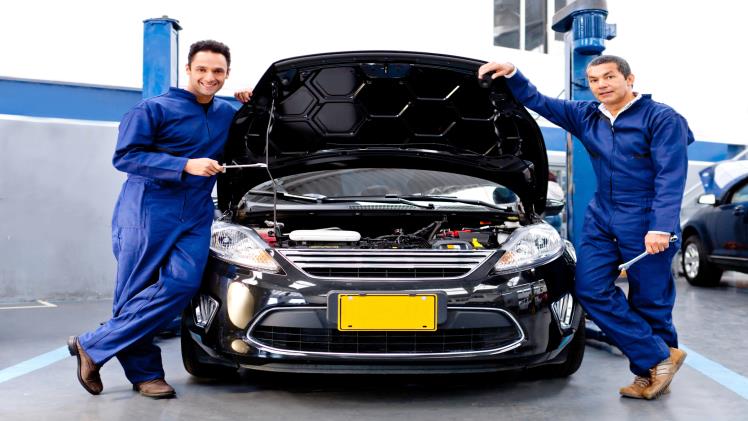It’s easy to put off routine auto maintenance at the nearest car shop when life becomes hectic with job, family, and other commitments. However, it is more important than you may realize to keep up with routine maintenance on your car.
There’s no denying the high cost of automobiles; thus, you’ll want to protect your investment for as long as feasible.
Take care of your car’s battery.
Over extended periods of inactivity, a car’s battery will deteriorate and eventually die. If your vehicle is going to be sitting in a garage for a while, or if it seems to be holding less charge than normal, you may want to explore using such a trickle charger to preserve the battery charge.
If your battery ever dies and you need to jump start your vehicle, you’ll be putting extra stress on the batteries and perhaps damaging the engine control system and other sensitive components. Without a trickle charger, driving your vehicle at least once a week will help maintain the battery, especially in the colder months. You can further discuss this matter with your chosen nearest car shop.
Scheduled filter replacements
Both the oil filter and the air filter in your vehicle will become dirty over time and need to be replaced on a regular basis by you or your chosen nearest car shop to keep your car running smoothly. Both should be changed as part of regular auto maintenance, but changing the air filter is very straightforward, so you may attempt it yourself to save money. Get a mobile mechanic from the nearest car shop to come to your driveway and service your vehicle.
Additionally, cleaning the air filter may typically increase its useful life. If you want to know how often you should replace your filters and how to clean them properly, then you should read your manual. Low-cost filters may seem like a good idea at first, but they might cause engine harm over time.
Keep it cool and steady when driving… on average
Maintaining “mechanical sympathy” when behind the wheel is a must. That calls for driving with a firm grasp of how the controls function.
You’ll get more mileage out of your gasoline and less wear on your components if you do this. A calm hand on the wheel, a steady foot on the pedals, and an eye on the road ahead may all go a long way toward preventing the need for emergency stops.
Costs associated with gas and maintenance will rise in direct proportion to how hard you press on the pedals. A regulated acceleration and deceleration, as well as predicting the road ahead, can save you money on gasoline and be easier on your vehicle.
Cool off with the air con.
You need to use your air conditioner regularly or you will have to replace it. When air conditioning units aren’t used often, they begin to leak the refrigerant gas that keeps them cool. Saving gas by turning off the air conditioner might result in a costly re-gas service visit. And yes, it does even include letting your vents blast chilly on occasion in the winter. If you suspect you need a gas refill, look for the nearest car shop. Drivers’ inclination to perform their own maintenance on their vehicles has naturally decreased as vehicles have gotten more complex.
If you want to improve your engine’s performance, though, you may handle simple work like changing the spark plugs and elevated leads on your own.
Keep in mind, nevertheless, that you should constantly check the owner’s manual and maintain the scheduled maintenance for your car.
If the space in between the electrode and the insulator on a relatively new plug is large, it may be a symptom that the engine isn’t running as well as it should. Definitely drop by the nearest car shop if that’s the case.
Leads should be changed if they are cracked or exhibit extreme wear. We advise having this done by a reliable garage; but, if you are competent and comfortable, you may do it yourself by consulting the owner’s manual and following the instructions.

